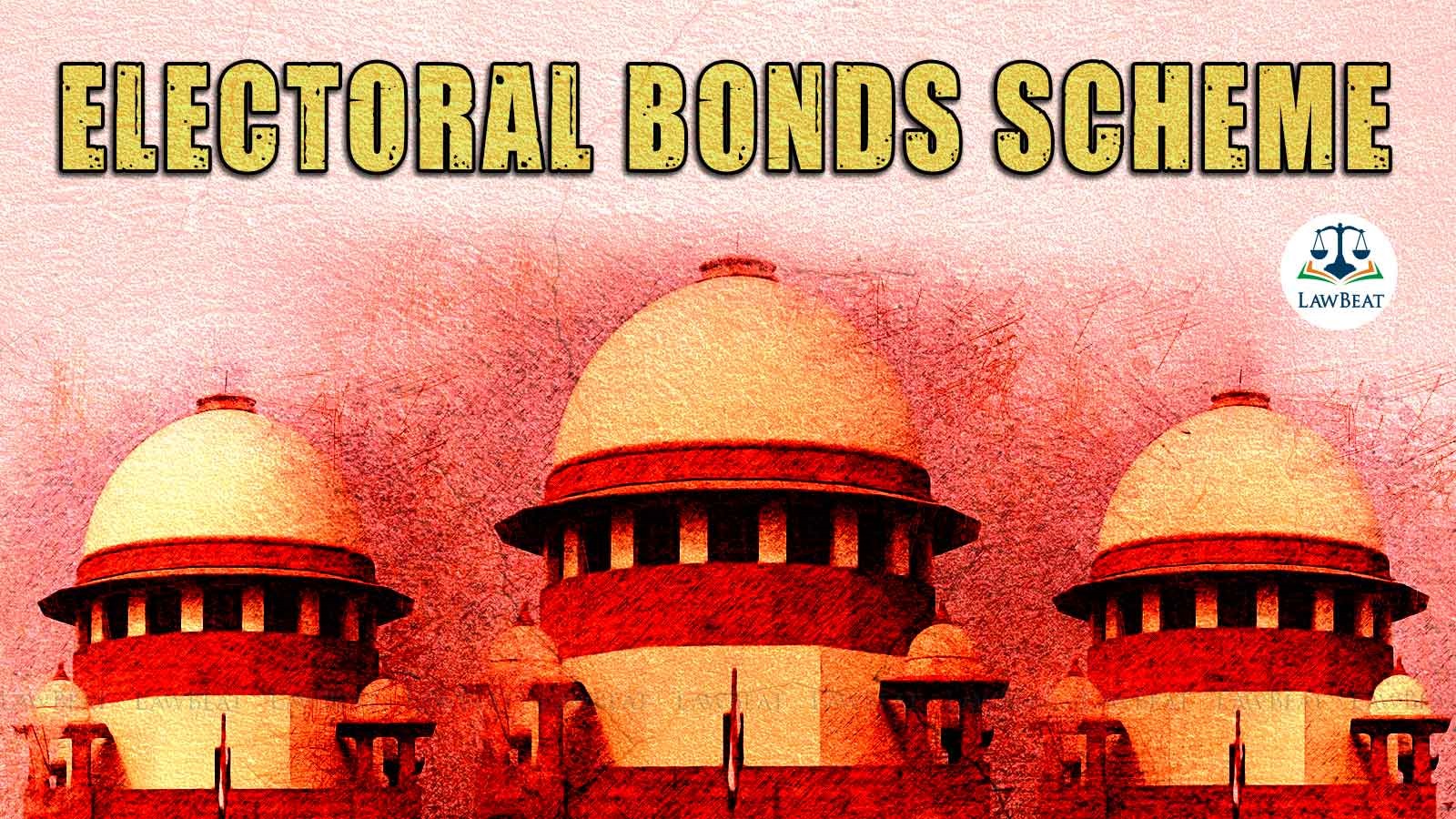Supreme Court constitutes 5-judge bench to hear electoral bonds challenge

Electoral bonds were introduced through Finance Act 2017, which amended three other statutes - the RBI Act, the Income Tax Act and the Representation of People Act for enabling introduction of such bonds. The usual practice is that bonds under the scheme are floated for purchase by any person for a period of ten days each in the months of January, April, July, and October by the Centre.
Supreme Court has notified the five-judge constitution bench constituted by it to hear the challenge made to the 2018 Electoral Bonds Scheme.
The bench comprises of Chief Justice of India DY Chandrachud, Justices Sanjiv Khanna, BR Gavai, JB Pardiwala and Manoj Misra.
On October 16, the CJI had informed that the challenge to the 2018 Scheme was referred to a Constitution Bench of atleast five judges.
"In view of importance of the issues raised, and with regard to Article 145(4) of the Constitution of India, the matter be placed before a bench of at least five judges. The matter will be retained on October 30, 2023," the CJI had said.
Earlier the Supreme Court had ordered that it would begin final hearing in the petitions challenging the 2018 Scheme on October 31, 2023.
"Filing of any additional written submissions to be completed by October 27. Petition to be listed for hearing at the top of the board on October 31, 2023. In case of spill over, matter will be heard on November 1, 2023", a bench comprising CJI DY Chandrachud, Justice JB Pardiwala and Justice Manoj Misra had said.
Advocate Prashant Bhushan, appearing for the petitioners, had opened his submission saying that electoral bonds "promotes corruption as the source of funding is anonymous, it is violative of Article 21".
When the CJI questioned how the bonds worked, Bhushan replied saying, "SBI was designated to be the Bank for this, you can go and buy bonds of different denominations..".
Advocate Shadan Farasat went on to inform the bench that disclosure requirement that were required earlier, had been done away with. "Party only has to disclose total amount of money received from donors..", he added.
Court then asked the petitioner if they wished to argue on the money bills issue involved in the case, pointing out that the same was coming up before a 7-judge bench.
"Let us for the time being set aside the money bill issue and argue on the scheme..", answered Bhushan.
In January, Supreme Court had said that it would list petitions challenging the 2018 Scheme for hearing in the third week of March 2023.
A bench comprising CJI Chandrachud and Justice PS Narasimha had said that the batch of petitions raises various issues which are separate including the challenge to the scheme, as to whether political parties will come within the ambit of the Right to Information Act (RTI) and amendments made to the Foreign Contribution (Regulation) Act (FCRA).
The government notified the Electoral Bond Scheme in 2018. According to a press release, an Electoral Bond is a bearer instrument in the nature of a Promissory Note and an interest free banking instrument. A citizen of India or a body incorporated in India will be eligible to purchase the bond. The press release further states that electoral bond would be issued/purchased for any value, in multiples of 1,000, 10,000, 1,00,000, 10,00,000 and 1,00,00,000 from the specified branches of the State Bank of India (SBI).
Last year in October, the Centre took the position in Supreme Court that the methodology of electoral bonds scheme is a "completely transparent" one and that it does not perpetuate black money or unaccounted money.
Cause Title: Association for Democratic Reforms vs Union of India and ors | Jaya Thakur Vs UOI & other batch petitions
